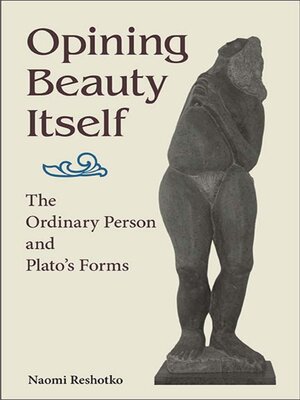Opining Beauty Itself
ebook ∣ The Ordinary Person and Plato's Forms · SUNY Series in Ancient Greek Philosophy
By Naomi Reshotko

Sign up to save your library
With an OverDrive account, you can save your favorite libraries for at-a-glance information about availability. Find out more about OverDrive accounts.
Find this title in Libby, the library reading app by OverDrive.



Search for a digital library with this title
Title found at these libraries:
| Library Name | Distance |
|---|---|
| Loading... |
Argues that Plato thinks that ordinary people grapple with the Forms and can make epistemological progress, even if they never achieve knowledge.
In Opining Beauty Itself, Naomi Reshotko examines Plato's discussions of epistemological states that fall short of knowledge. Wary that interpretations of Plato's epistemology often omit a detailed analysis of the way he deploys the epistemological concepts that are inferior to, but often prerequisites for, knowledge, Reshotko argues that we must understand these inferior prerequisite states, especially belief (doxa), before we can understand what Plato thought about knowledge. Examining how recollection provides what is required for inquiry, Reshotko argues that recollection does not afford doxa-let alone what contemporary philosophers call 'true belief.' Rather, recollection is responsible for an ability to refer that is a condition for every kind of doxa and for knowledge. Reshotko concludes that Plato regards doxa as the fabric of all the other epistemic states that fall short of knowledge, and develops a comprehensive view of Plato's deployment of doxa that can serve as a foundation for further interpretation of Plato's epistemology. In the process, Reshotko shows that, for Plato, ordinary people do opine the Forms and can make progress toward knowledge of them, even if that knowledge is never achieved.







